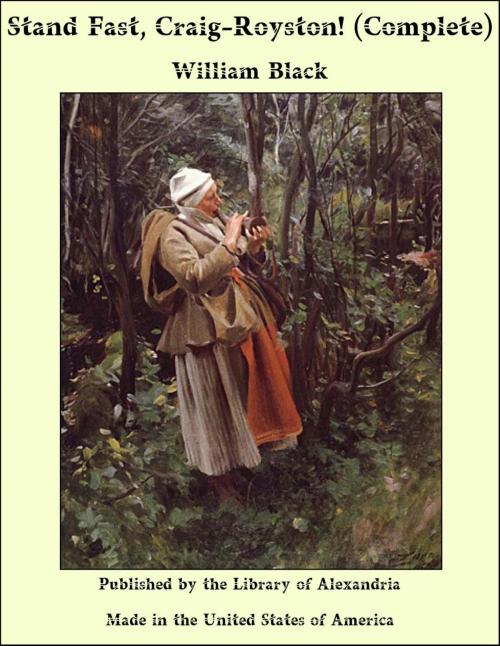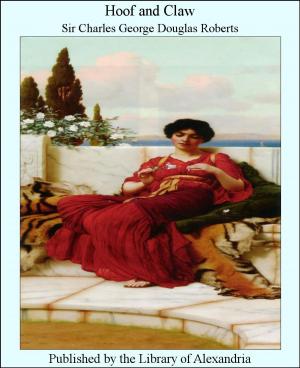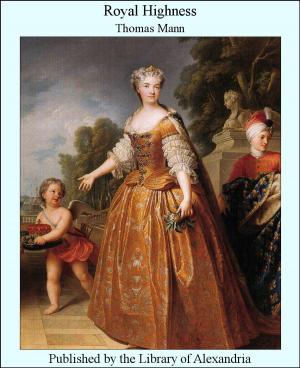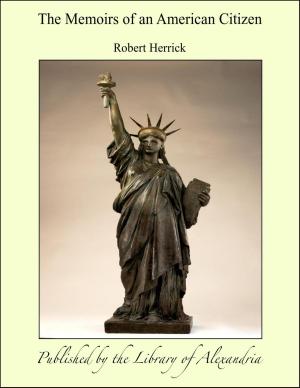Stand Fast, Craig-Royston! (Complete)
Nonfiction, Religion & Spirituality, New Age, History, Fiction & Literature| Author: | William Black | ISBN: | 9781465581761 |
| Publisher: | Library of Alexandria | Publication: | March 8, 2015 |
| Imprint: | Language: | English |
| Author: | William Black |
| ISBN: | 9781465581761 |
| Publisher: | Library of Alexandria |
| Publication: | March 8, 2015 |
| Imprint: | |
| Language: | English |
On a certain sunny afternoon in May, when all the world and his wife were walking or driving in Piccadilly, two figures appeared there who clearly did not belong to the fashionable crowd. Indeed, so unusual was their aspect that many a swift glance, shot from carefully impassive faces, made furtive scrutiny of them as they passed. One of the strangers was an old man who might have been a venerable Scandinavian scald come to life again—a man thick-set and broad-shouldered, with features at once aquiline and massive, and with flowing hair and beard almost silver-white. From under his deeply lined forehead and shaggy eyebrows gleamed a pair of eyes that were alert and confident as with the audacity of youth; and the heavy white moustache and beard did not quite conceal the cheerful firmness of the mouth. For the rest, he wore above his ordinary attire a plaid of shepherd's tartan, the ends loosely thrown over his shoulders. By his side there walked a young girl of about seventeen, whose singular, if somewhat pensive and delicate beauty, could not but have struck any passer-by who happened to catch sight of her. But she rarely raised her eyes from the pavement. What was obvious to every one was, first of all, the elegance of her walk—which was merely the natural expression of a perfectly moulded form; and then the glory of her hair, which hung free and unrestrained down her back, and no doubt added to the youthfulness of her look. As to the colour of those splendid masses—well, it was neither flaxen, nor golden, nor brown, nor golden-brown, but apparently a mixture of all these shades, altering in tone here and there according to sunshine or shadow, but always showing a soft and graduated sheen rather than any definite lustre. Her face, as has been said, was mostly downcast; and one could only see that the refined and sensitive features were pale; also that there was a touch of sun-tan over her complexion, that spoke of travel. But when, by inadvertence, or by some forced overcoming of her native diffidence, she did raise her eyes, there flashed a revelation upon the world; for these blue-grey deeps seemed to hold light; a mild-shining light, timid, mysterious, appealing almost; the unconsciousness of childhood no longer there, the self-possession of womanhood not yet come: then those beautiful, limpid, pathetic eyes, thus tremblingly glancing out for a second, would be withdrawn, and again the dark lashes would veil the mystic, deep-shining wells. This was Maisrie Bethune; the old man beside her was her grandfather. The young girl seemed rather to linger behind as her companion went up the steps towards a certain door and rang the bell; and her eyes were still downcast as she followed him across the hall and into an ante-room.
On a certain sunny afternoon in May, when all the world and his wife were walking or driving in Piccadilly, two figures appeared there who clearly did not belong to the fashionable crowd. Indeed, so unusual was their aspect that many a swift glance, shot from carefully impassive faces, made furtive scrutiny of them as they passed. One of the strangers was an old man who might have been a venerable Scandinavian scald come to life again—a man thick-set and broad-shouldered, with features at once aquiline and massive, and with flowing hair and beard almost silver-white. From under his deeply lined forehead and shaggy eyebrows gleamed a pair of eyes that were alert and confident as with the audacity of youth; and the heavy white moustache and beard did not quite conceal the cheerful firmness of the mouth. For the rest, he wore above his ordinary attire a plaid of shepherd's tartan, the ends loosely thrown over his shoulders. By his side there walked a young girl of about seventeen, whose singular, if somewhat pensive and delicate beauty, could not but have struck any passer-by who happened to catch sight of her. But she rarely raised her eyes from the pavement. What was obvious to every one was, first of all, the elegance of her walk—which was merely the natural expression of a perfectly moulded form; and then the glory of her hair, which hung free and unrestrained down her back, and no doubt added to the youthfulness of her look. As to the colour of those splendid masses—well, it was neither flaxen, nor golden, nor brown, nor golden-brown, but apparently a mixture of all these shades, altering in tone here and there according to sunshine or shadow, but always showing a soft and graduated sheen rather than any definite lustre. Her face, as has been said, was mostly downcast; and one could only see that the refined and sensitive features were pale; also that there was a touch of sun-tan over her complexion, that spoke of travel. But when, by inadvertence, or by some forced overcoming of her native diffidence, she did raise her eyes, there flashed a revelation upon the world; for these blue-grey deeps seemed to hold light; a mild-shining light, timid, mysterious, appealing almost; the unconsciousness of childhood no longer there, the self-possession of womanhood not yet come: then those beautiful, limpid, pathetic eyes, thus tremblingly glancing out for a second, would be withdrawn, and again the dark lashes would veil the mystic, deep-shining wells. This was Maisrie Bethune; the old man beside her was her grandfather. The young girl seemed rather to linger behind as her companion went up the steps towards a certain door and rang the bell; and her eyes were still downcast as she followed him across the hall and into an ante-room.















